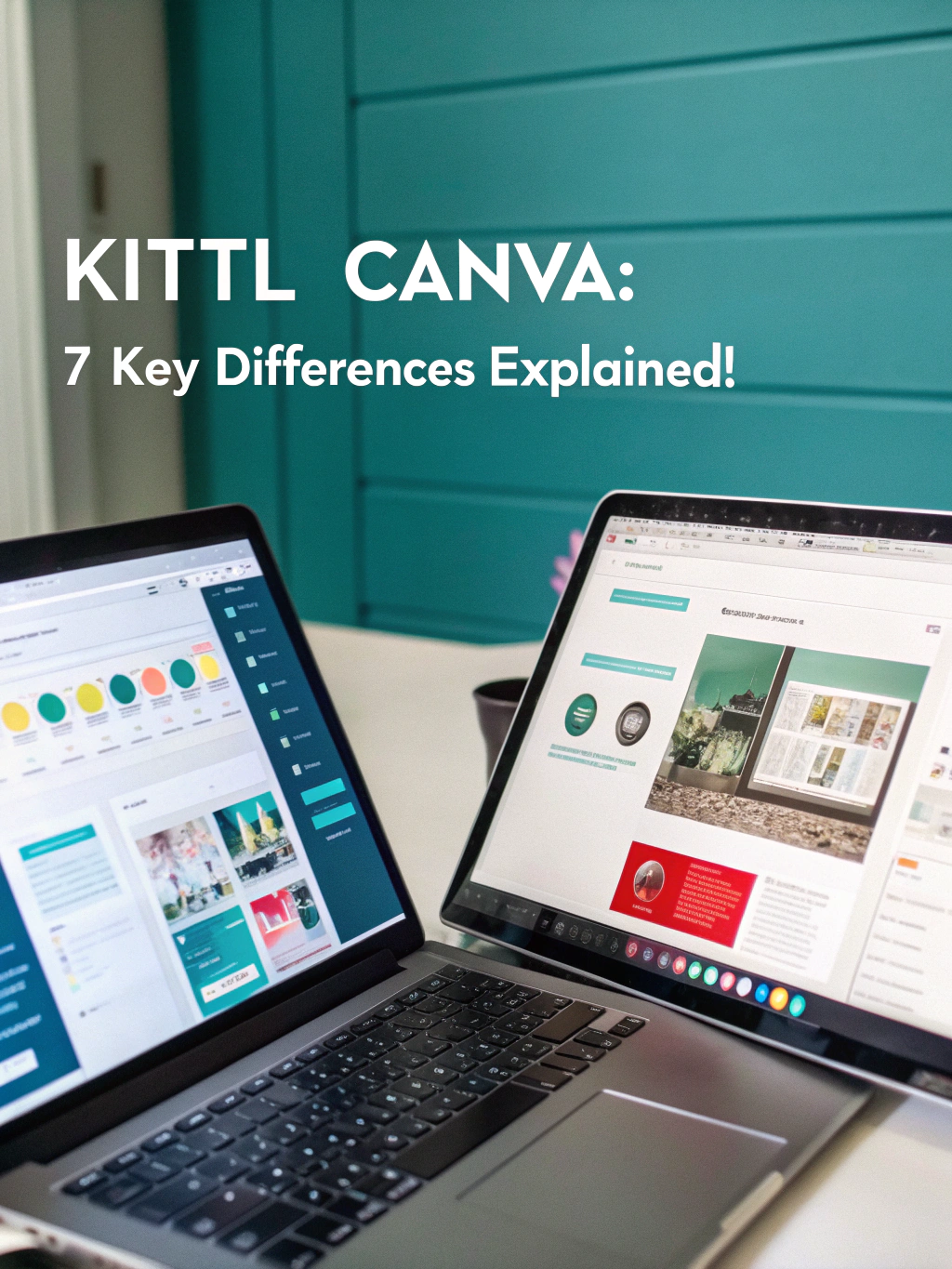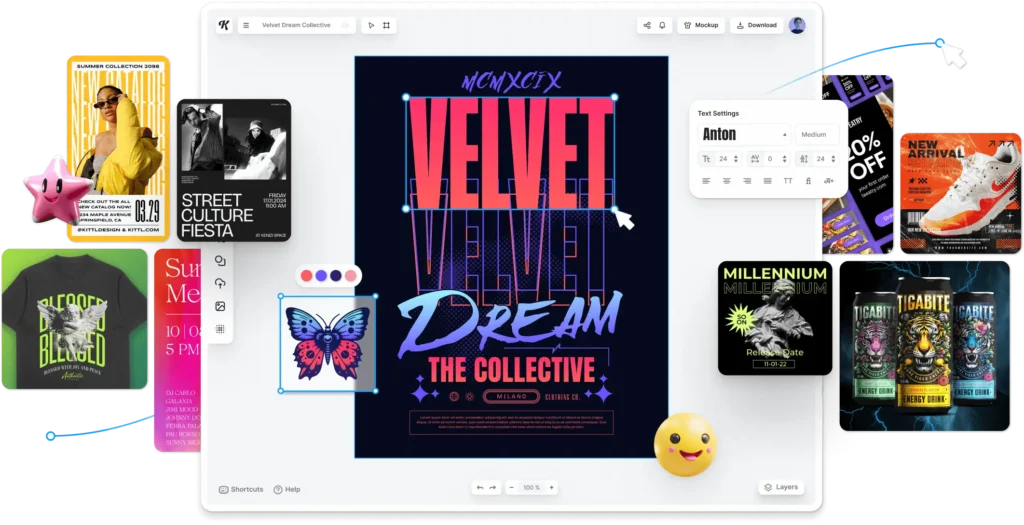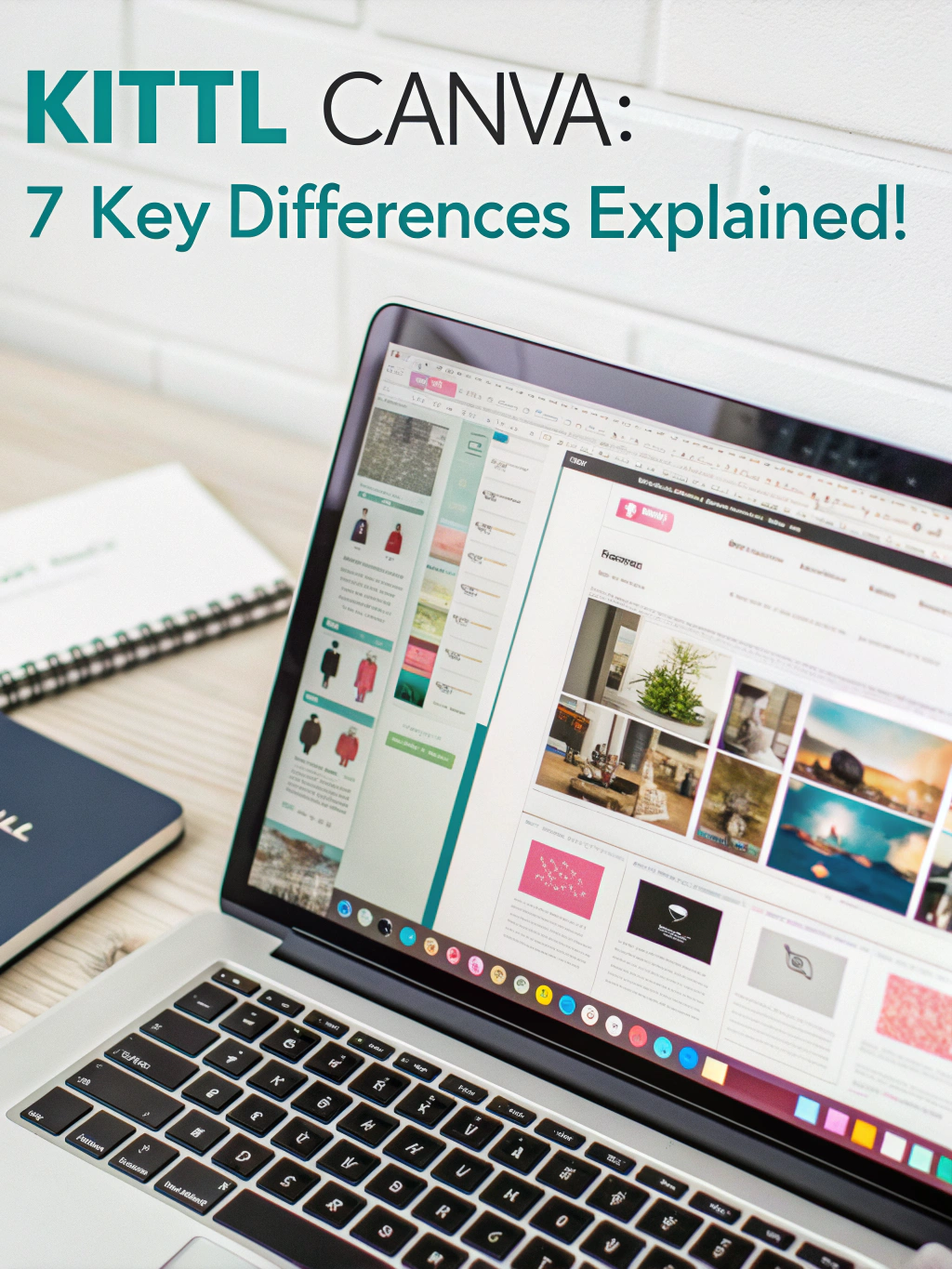Introduction: Finding Your Creative Design Soulmate
Do you ever stare at your screen, fingers hovering over your keyboard, feeling that familiar creative block when trying to design something beautiful? I’ve been there countless times. The right design tool can be the difference between frustration and flow, between amateur results and professional polish. As someone who’s spent years navigating the digital design landscape, I’ve experienced firsthand how the kittl vs canva decision can significantly impact your creative journey.
These platforms have revolutionized how we approach design, but choosing between them isn’t always straightforward. Each offers unique capabilities that might align perfectly with your specific needs—or miss the mark entirely. Let’s bridge the knowledge gap and explore the seven crucial differences that will help you make an informed choice.
Understanding the Design Giants: A Brief Overview
What is Canva?
Canva launched in 2013 and quickly became the go-to design platform for beginners and professionals alike. With its intuitive interface and vast template library, Canva democratized design, making it accessible to everyone regardless of technical skill.
What is Kittl?
Formerly known as Heritage Type, Kittl emerged as a specialized design tool focused on creating vintage and retro-styled graphics. It has since evolved into a comprehensive design platform with unique features that set it apart in the crowded design tool market.
1. User Interface: Navigating Your Creative Workspace

Canva’s Approach
Canva prioritizes simplicity and accessibility with its drag-and-drop interface. Everything is visible and easily accessible, making it ideal for:
- First-time designers
- Quick projects with minimal learning curve
- Teams with varying levels of design experience
Kittl’s Approach
Kittl offers a more specialized interface with advanced toolsets that might take longer to master but provide greater creative control:
- Layer-based editing system similar to professional design software
- More detailed customization options
- Specialized tools for typography and effects
The Kittl vs Canva comparison in terms of interface reveals that while Canva focuses on accessibility, Kittl emphasizes creative depth.
2. Design Capabilities: Creative Potential Unlocked
Canva‘s Strengths

Canva excels at providing a vast library of templates and elements for almost any project type:
- Social media graphics
- Presentations and documents
- Marketing materials
- Basic video editing
Kittl‘s Specialized Focus

Kittl stands out with its specialized design features:
- Vintage and retro-style design capabilities
- Advanced typography tools
- Custom effects and textures
- Vector manipulation tools
When considering ways to boost creativity with the right tool, Kittl often offers more unique and distinctive design possibilities.
3. Template Offerings: Starting Points for Creativity
Template Comparison Table
| Feature | Canva | Kittl |
|---|---|---|
| Total Templates | 250,000+ | 30,000+ |
| Free Templates | Extensive selection | Extensive selection |
| Niche Design Templates | Good variety | Exceptional vintage/specialty |
| Customization Depth | Moderate | Advanced |
| Industry-specific | Broad coverage | Focused on distinctive niches (Works great for POD marketers) |
This is where your decision to choose between Kittl and Canva might hinge on whether you need breadth or depth in template options.
4. Pricing Structures: Investment in Your Design Journey
Canva’s Pricing Tiers
Canva offers a freemium model with several options:
- Free Plan: Generous features with limitations on premium elements
- Canva Pro: $12.99/month (annual billing)
- Canva for Teams: Starting at $14.99/month for the first 5 people
Kittl’s Pricing Approach
Kittl follows a different pricing structure:
- Free Plan: Limited but useful for exploring
- Creator Plan: $9/month (annual billing)
- Professional Plan: $19/month (annual billing)
For those looking to find the ideal design assistant, pricing plays a crucial role in the decision process.
5. Learning Curve: Mastery Timeline
Mastering Canva
Canva prioritizes immediate productivity with:
- Intuitive interface requiring minimal training
- Helpful tutorials and guides
- Quick template adaptation
Most users can create professional-looking designs within hours.
Mastering Kittl
Kittl has a steeper learning curve due to:
- More advanced design capabilities
- Specialized tools requiring practice
- Professional-grade features
This investment in learning allows users to unleash graphic design potential beyond what simpler tools offer.
6. Collaboration Features: Team Design Dynamics
Canva’s Collaboration Tools
Canva excels at team environments with:
- Real-time editing with multiple users
- Team folders and permission settings
- Comment and feedback systems
- Brand kit for consistent design elements
Kittl’s Collaborative Approach
Kittl’s collaboration features are developing but include:
- Basic sharing options
- Export formats for team feedback
- Growing team capabilities
For those who need to explore graphic design platforms with strong team capabilities, this difference is significant.
7. Unique Specializations: Where Each Platform Shines
Canva’s Unique Offerings
- Presentation capabilities with animations
- Social media scheduling
- Video editing features
- Print services integration
Kittl’s Distinctive Features
- Historical and vintage typography
- Advanced distressing and texture effects
- Customizable vector shapes
- Specialized logo creation tools
Understanding these essential design tool differences can help you align your choice with your specific creative goals.
Conclusion: Making Your Choice
The kittl vs canva decision ultimately comes down to your specific needs. Canva remains the ideal choice for teams, beginners, and those needing a wide variety of design types with minimal learning investment. Kittl shines for designers seeking distinctive, character-rich designs with depth and uniqueness, especially in vintage or specialized artistic styles.
Many designers find value in using both platforms—Canva for quick, straightforward projects and team collaboration, and Kittl when they need to create something truly distinctive and characterful.
Whichever tool you choose, remember that the best design software is the one that removes obstacles between your creative vision and your finished product. Try both, and have your own kittl vs canva comparision to explore their features, and discover which one sparks your artistic journey based on the work you do and the art you are into.
Frequently Asked Questions
Is Kittl better than Canva for professional designers?
Professional designers often prefer Kittl for specialized projects requiring unique typography and vintage effects, while still using Canva for quick client work and team projects. The kittl vs canva question for professionals often results in using both for different purposes.
Can I use Kittl and Canva for free?
Both platforms offer free tiers with limitations. Canva’s free plan is more generous for general use, while Kittl’s free plan allows you to explore its specialized features before committing.
Which is better for creating logos: Kittl or Canva?
Kittl generally offers more specialized tools for creating distinctive logos with character and vintage appeal. Canva provides more templates but with less customization depth.
Do I need design experience to use Kittl?
While Kittl has a steeper learning curve than Canva, beginners can still achieve good results by starting with templates and gradually exploring more advanced features.
Can I switch my designs between Kittl and Canva?
Direct transfer isn’t possible, but you can export designs as PNG or PDF files from one platform and use them as elements in the other, creating workflow flexibility between the platforms.






